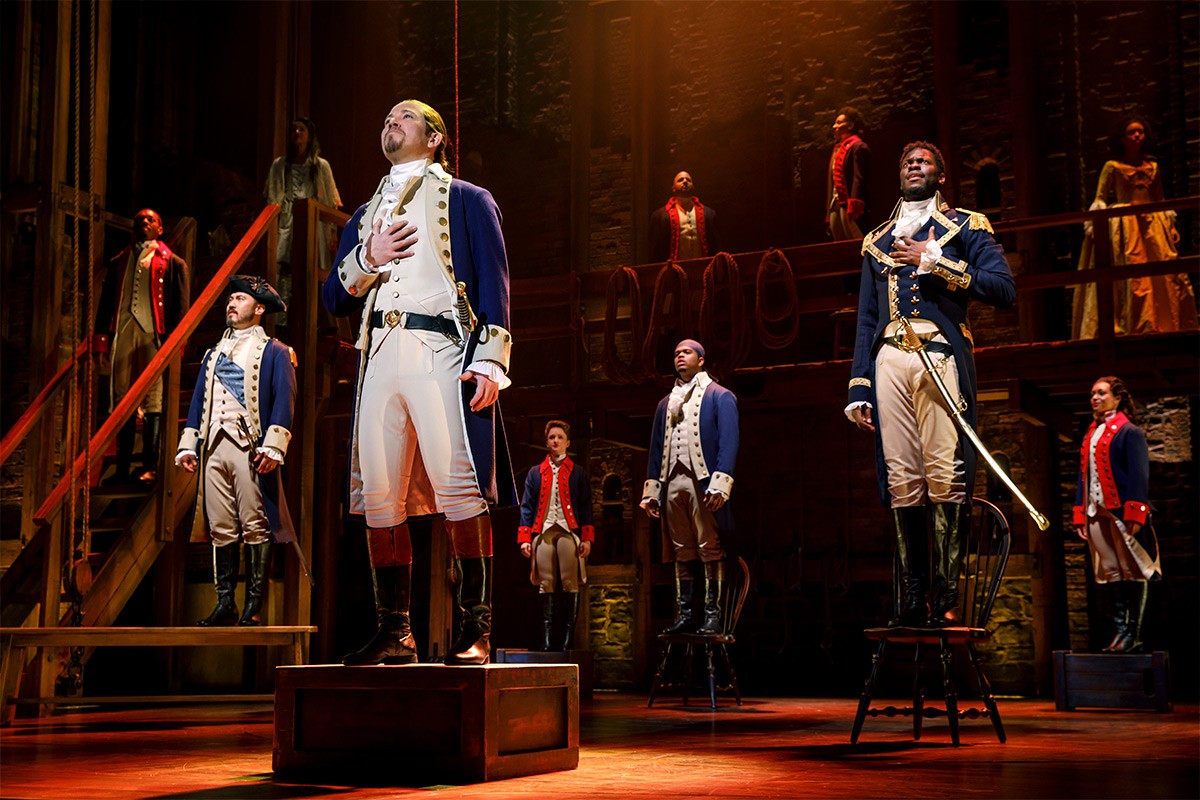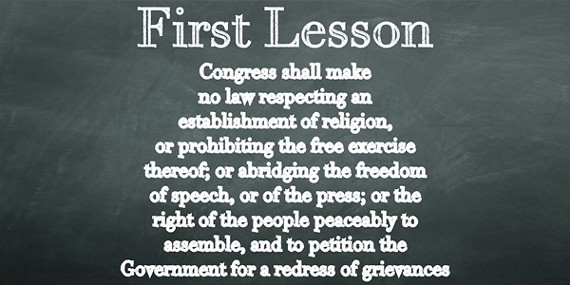 The Orpheum
The Orpheum
Scene from ‘Hamilton’
Hamilton bounced into the national consciousness four years ago, first Off-Broadway in February 2015, and at Broadway’s Richard Rodgers Theatre the following August. Critics swooned, advance box office sales broke records. The show earned 16 Tony nominations and won 11, and on and on. Its success came from Lin-Manuel Miranda (lyrics, music, and book) and his understanding of what makes great musical theater and how to artfully break the rules.
In the years since, it’s conquered Broadway and started a national tour, coming this week to the Orpheum for a comparatively long run through July 28th. It earned its stripes with a fresh take on a good old American story line: Immigrants come to the New World and carve out a new nation rooted in rationalism and humanity with respect for its citizens. Okay, the white, male, non-native, land-owning citizens, but still. Except Hamilton flips it all and casts mostly non-white actors as the Founding Fathers and their wives. Genius.
Four years can be a long time, however, as in the length of a presidential term. What was born in the Obama era as an innovative take on the origins of the United States has now found itself on a very different stage. It’s the same story, yes, and if you think you’ll like a well-scripted musical heavily reliant on hip-hop but with ample R&B, pop, soul, and good ol’ show tunes, you’ll enjoy it, maybe even be moved by it.
But today you can’t help but experience it with the knowledge that the nation these people fought and died to create is deeply corrupted. The country was cobbled together by imperfect people with imperfect results, but they were doing it in the Age of Reason, a time when there was thoughtful discourse and a desire to crush tyranny. For the most part, they set up processes that would allow the country to evolve while keeping its character and integrity.
Hamilton, though, also shows the beginnings of what we have today, a government that has scant philosophy, since it runs on the energy of partisan warfare. Power to the party that gets it and holds it by any means necessary. The musical skewers the machinations of the post-Washington politicians — Jefferson, Madison, and Burr in particular — as they jockeyed for influence. But there are plenty of others to indict, then and now.
You may well come out of the musical with a good feeling, as it is a sharply directed, well choreographed, smartly written story of passions. But though it wasn’t intended when it debuted a short lifetime ago, it now also gives the theater-goer something else to carry. In a country where cruelty is mandated by the executive, where ethics at the federal level are shredded, where reason has been abandoned, where truth is fluid, let Hamilton be a call to arms to revive the era of American Enlightenment.
